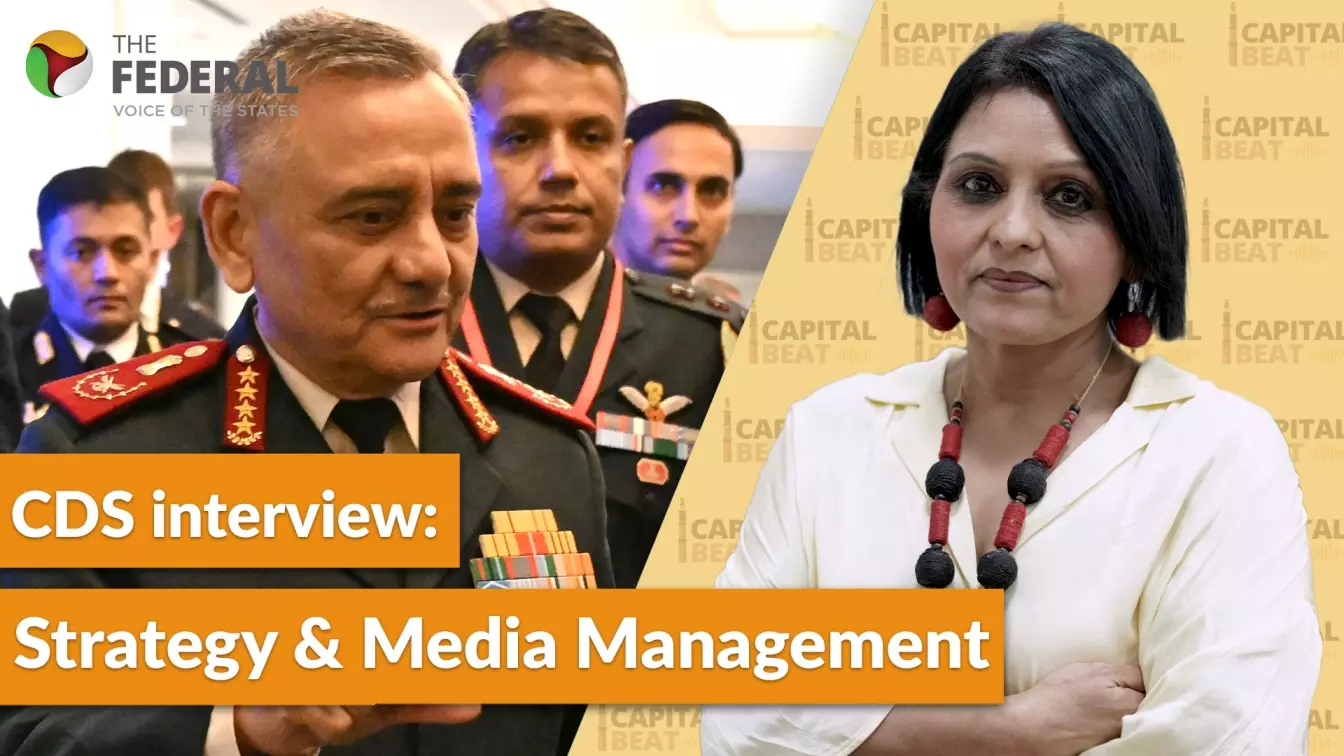
CDS’s Op Sindoor remarks abroad spark media strategy debate
Siddharth Sharma and Dr Aftab Kamal Pasha discuss if General Anil Chauhan's disclosure of air asset losses signals a policy shift or narrative failure

In this episode of Capital Beat, media analyst Siddharth Sharma and international affairs expert Dr Aftab Kamal Pasha unpack the controversy triggered by India's Chief of Defence Staff (CDS), General Anil Chauhan's statement at the Shangri-La Dialogue in Singapore, in which he acknowledged the loss of Indian air assets during Operation Sindoor. The episode discusses whether the disclosure, made on foreign soil, signals a failure in media narrative management by the government or a strategic shift in communication policy amid Operation Sindoor.
Media strategy questioned
Sharma raised a critical distinction: “Not denying and accepting are two different things.” Sharma recalled how earlier military briefings around Operation Sindoor were vague on losses, with officials like Air Marshal AK Bharti neither confirming nor denying any damage. Now, the CDS’s open admission signals a government-sanctioned shift in narrative, Sharma said.
Sharma argued that if the CDS spoke publicly, it likely had the government’s approval, a permission absent earlier. He noted, “This change clearly indicates that the government has now decided to allow the military to speak more openly.”
Should India have spoken first?
Sharma questioned why the prime minister did not convene another all-party meeting following the ceasefire, especially when Operation Sindoor’s first phase had ended. He emphasised that the initial all-party meeting gave the prime minister the mandate to act, and it would have been natural for details shared with Reuters to be shared in such a forum first.
He also said that the disclosure’s timing was crucial. “The CDS revealing tactical errors abroad has diverted attention from uncomfortable domestic questions — like why Pahalgam happened under a nationalist government and why India accepted a ceasefire when Pakistan was on its knees.”
Tactical narrative shift?
According to Sharma, allowing the CDS to speak abroad might be a strategic move to shift public discourse away from difficult questions. “The military wanted to speak, and perhaps the government gave them a window to do it abroad, away from domestic scrutiny,” he argued.
The panelist likened the government’s move to a cricket team coach analysing a win that involved some missed catches. The win still belongs to the military, Sharma said, but the government appears to be manipulating how it is narrated.
A widening gap
Dr Pasha took a more critical view. He called the government’s approach “a failure and incompetence to accept facts,” citing a sharp disconnect between inflated public expectations and actual outcomes of Operation Sindoor.
Pasha noted that while the military acted professionally, the government exaggerated potential goals like "liberating PoK". “The government stood exposed when it failed to deliver on its hyperbolic narrative,” he said.
Strategic silence or forced disclosure?
Pasha suggested that the government may have prevented the military from disclosing information earlier, only to reverse course under pressure. “What the CDS has said now about losses and tactical issues could have been stated earlier in a domestic setting,” he said.
He pointed to statements by other top defence officials like Air Chief Marshal AP Singh and Air Vice Marshal AK Bharti that hinted at setbacks, adding that transparency from the military contrasts with silence from political leaders.
Civil-military dissonance
Both panellists highlighted what appears to be growing disaffection between the armed forces and political leadership. Pasha warned that using the military for ideological purposes risks damaging institutional credibility. “The military doesn’t serve to advance political narratives; its role is national security,” he said.
He also noted that trolling of the CDS by right-wing social media circles exposes the government’s double standards — encouraging praise for military success while scapegoating it when facts contradict the ruling narrative.
The content above has been generated using a fine-tuned AI model. To ensure accuracy, quality, and editorial integrity, we employ a Human-In-The-Loop (HITL) process. While AI assists in creating the initial draft, our experienced editorial team carefully reviews, edits, and refines the content before publication. At The Federal, we combine the efficiency of AI with the expertise of human editors to deliver reliable and insightful journalism.

